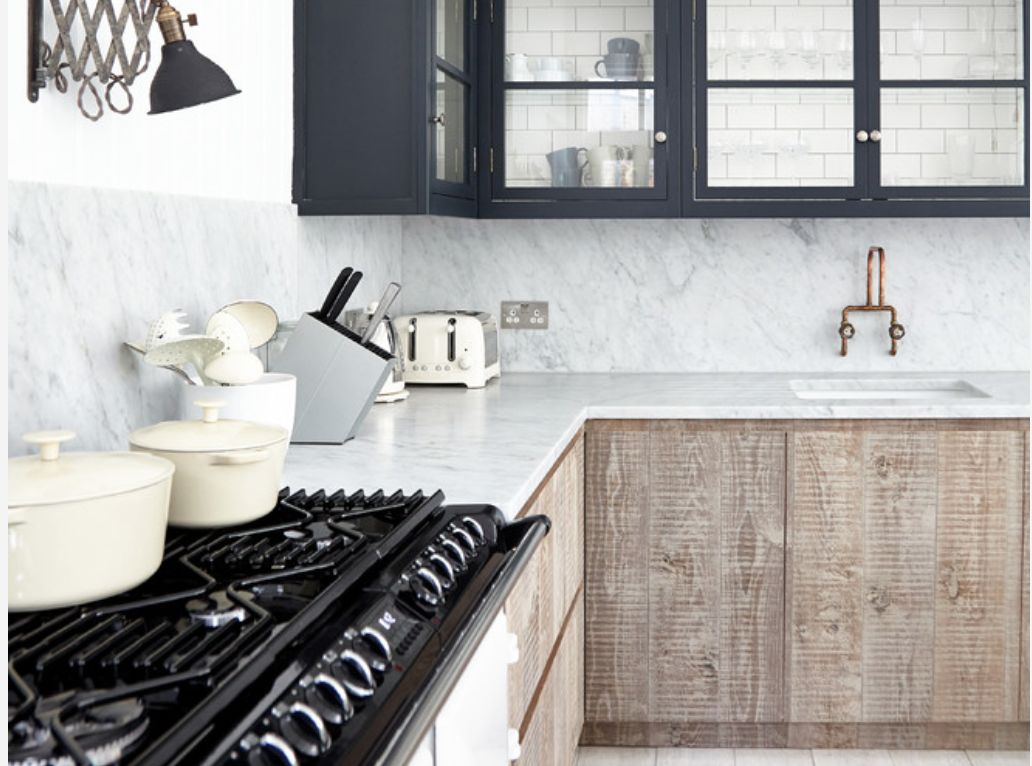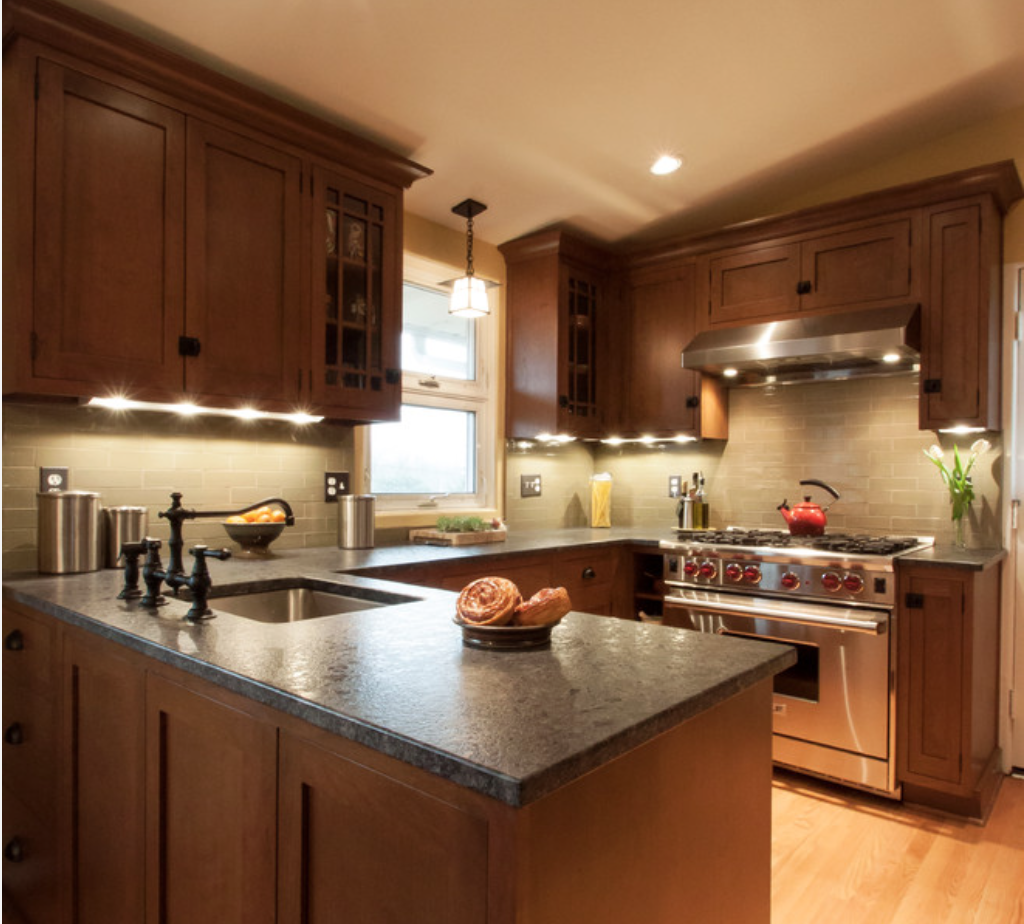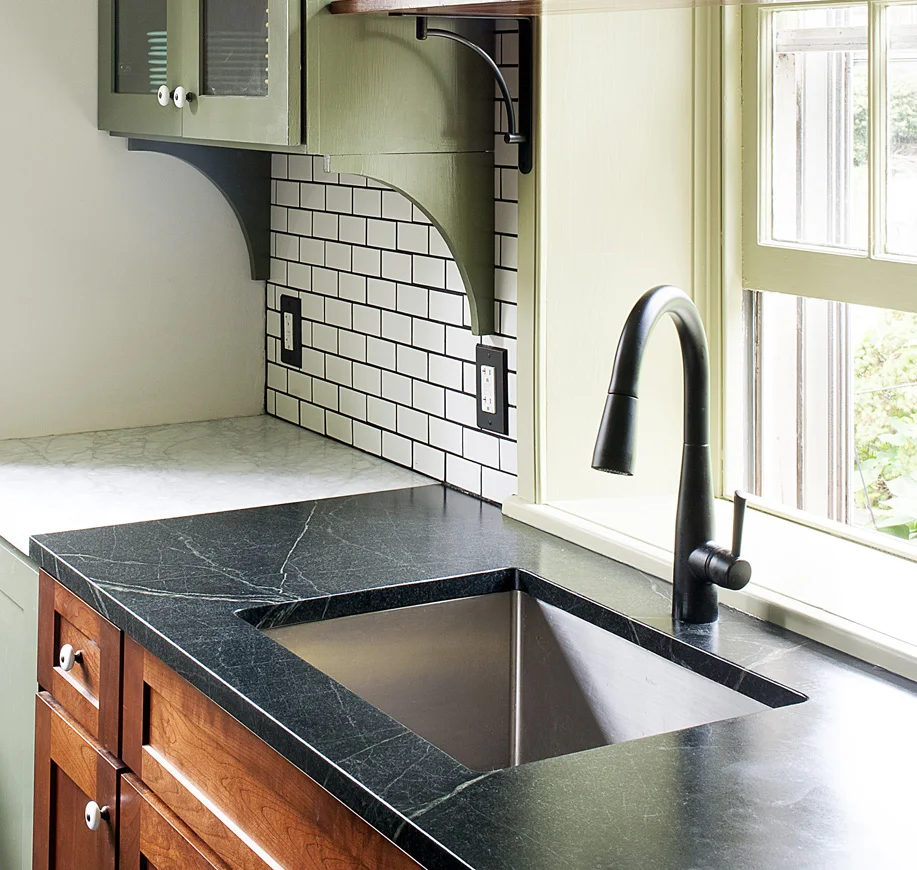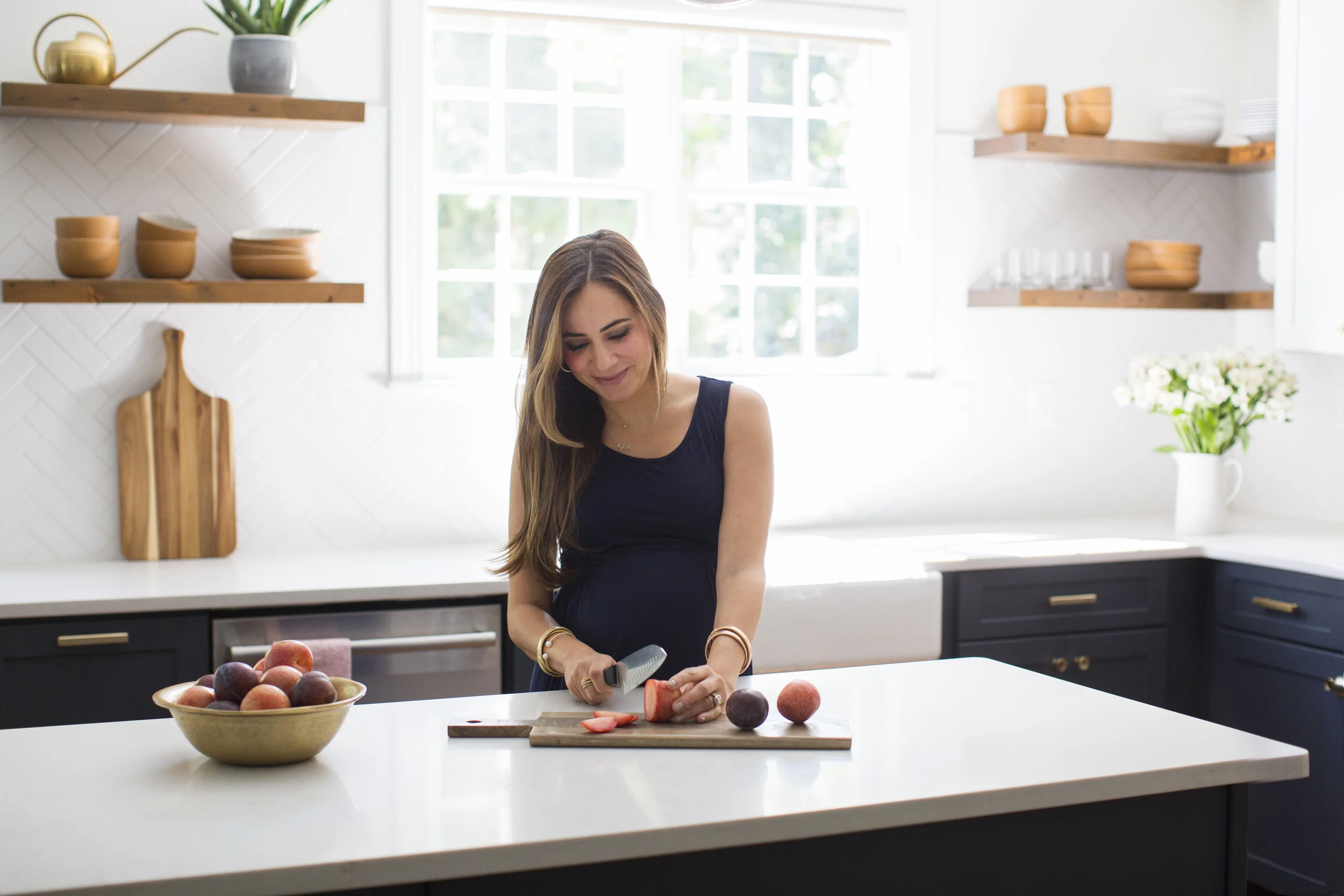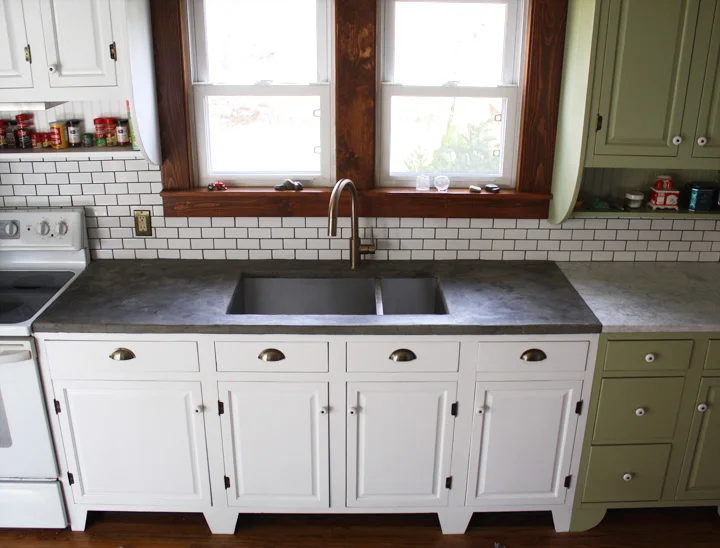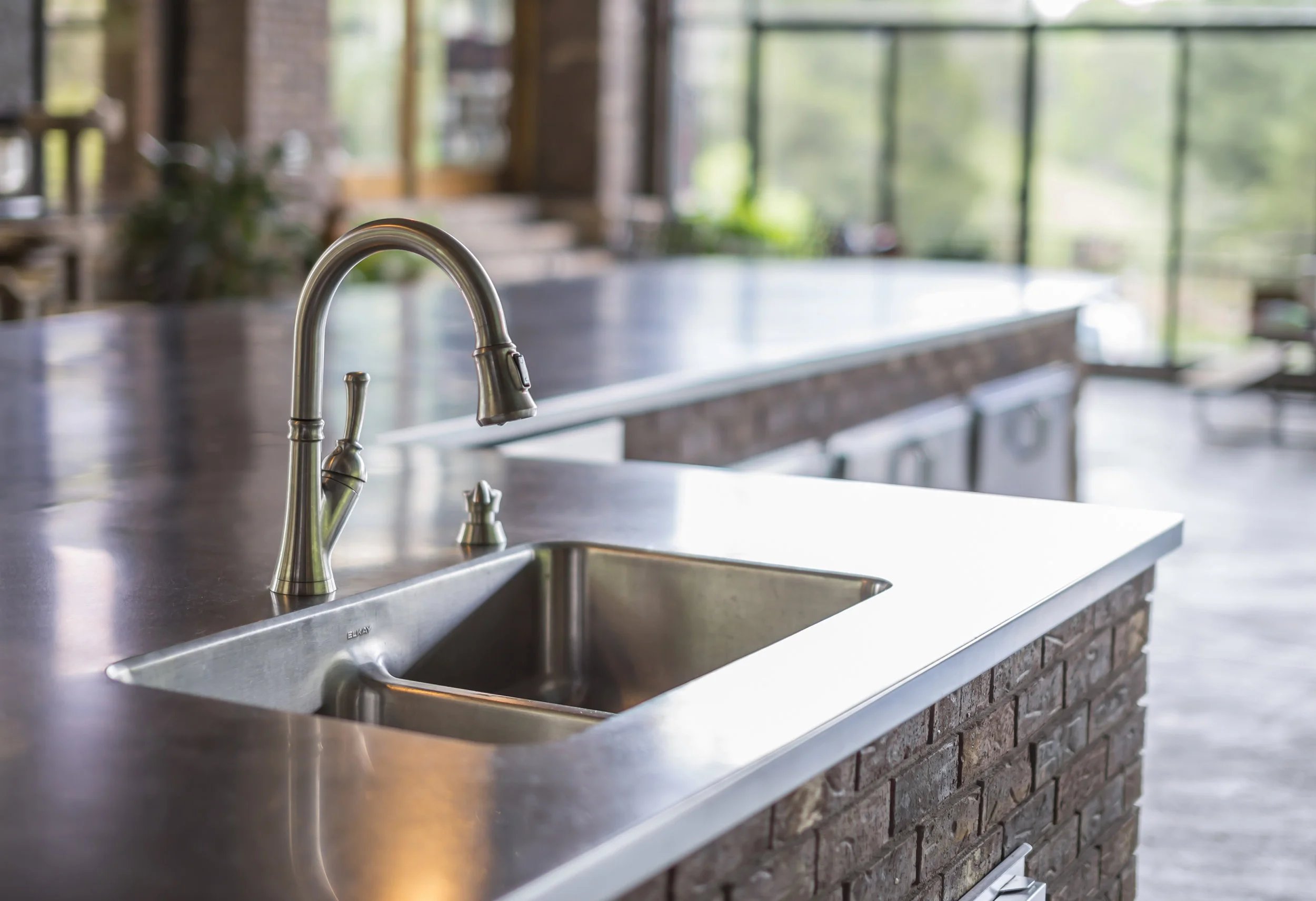The kitchen designers at Airy Kitchens surveyed our favorite stone suppliers around Pennsylvania. Here's what we found:
This carrara marble creates a bright and elegant counter and backsplash.
1) Marble is classic and timeless. This durable stone will last a lifetime... with some maintenance. Marble is available in a wide range of colors, but white is the most popular. Different varieties of white can be very inconsistent in color and pattern, so make sure you see the slab before buying.
Pros: Marble is the only natural stone available in a soft white color. Marble's natural cool temperature makes it perfect for baking. You can set a hot pan on marble and use it outdoors.
Cons: Marble will easily stain and needs to be resealed every 6-12 months. Acidic foods like lemon and tomato will etch the surface and it will scratch easily. This stone works better for folks who like a natural weathered patina because it's hard to keep it looking new.
This leathered finish granite has a softer look and feel.
2) Granite is durable and beautiful. While some darker colors may look subtle, most granites have distinct patterns of iridescent speckles and swirls. Most granite is inexpensive compared to other natural stones, but rare types can get pricey.
Pros: Granite gives a show stopping look and is durable. It comes in many colors and resists scratching well. You can set a hot pan on it and use it outdoors.
Cons: Granite is not subtle, so it will be the star of your kitchen. If you want to use other colorful, patterned tiles or curtains, it may get busy. This natural stone can stain and needs to be resealed yearly.
This soapstone has distinctive veining with a hint of green.
3) Soapstone has a soft look and feel. Most soapstone is grey and will darken over time to black. This can happen naturally or you can wax it to darken the color. Soapstone can scratch, but scratches can also be sanded out.
Pros: Soapstone is chemically inert, meaning bacteria won't grow on it. This stone will not stain or etch and you do not have to apply chemical sealers. You can put a hot pan on it and use it outdoors.
Cons: Soapstone is only available in blacks, grays, and greens. It is more expensive than granite and marble. The natural patina can look dirty and waxing is needed every few months to give a consistent finish.
Quartz looks neat and clean in a solid color.
4) Quartz is a manmade product combining natural quartz chips with resin and color. This material is harder and more solid than granite, but it doesn't have the beautiful patterns found in natural stones.
Pros: Quartz will not stain and is very hard to scratch. It doesn't need to be sealed or maintained. Quartz is available in every color you can imagine.
Cons: Quartz is more expensive than most granite and marble. It is heat resistant, but you cannot leave a hot pan on it or use it outdoors.
Butcher block counters add warmth to painted cabinets.
5) Butcherblock counters are a great way to add warmth and a touch of nature to your kitchen. These counters are available in an assortment of wood types and can be stained a variety of colors. Butcher block will show its age faster than stone and needs regular maintenance, but scratches and stains can be sanded away.
Pros: Butcherblock is inexpensive and easy to DIY. Wood is warmer and softer than stone, making it kid friendly and less likely to shatter a dropped glass.
Cons: Wood will get mildew around water sources and can crack with age. These counters should be oiled every 2-3 months. You should not put a hot pan on these nor can they be used outdoors.
Concrete counters introduce texture and a consistent color to this kitchen.
6) Concrete counters are strong and can be poured on site. This makes them a possibility where other counters can't fit without a seam. Concrete looks industrial, but it needs upkeep.
Pros: Concrete is customizable and has a unique look. You can put hot pans on it and use it outdoors.
Cons: Concrete is more likely to crack than stone or wood and it's expensive. It is very easy to stain, and must be sealed for food use.
This quartzite counter has a distinct look
7) Quartzite is a natural stone with beautiful patterns and colors. This expensive oddity is becoming more popular in stone yards everywhere.
Pros: Quartzite is scratch resistant and will not etch. It is durable and beautiful. You can put a hot pan on it and use it outdoors.
Cons: Quartzite will stain and needs to be sealed yearly. Most varieties are more expensive than granite or marble.
Stainless looks great outdoors

